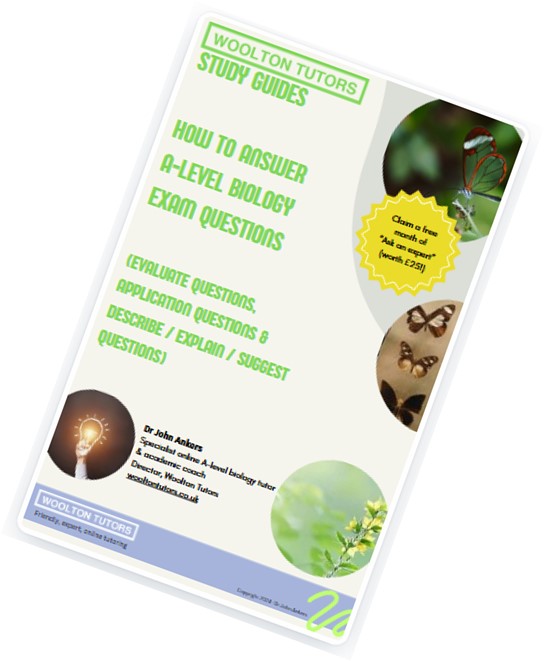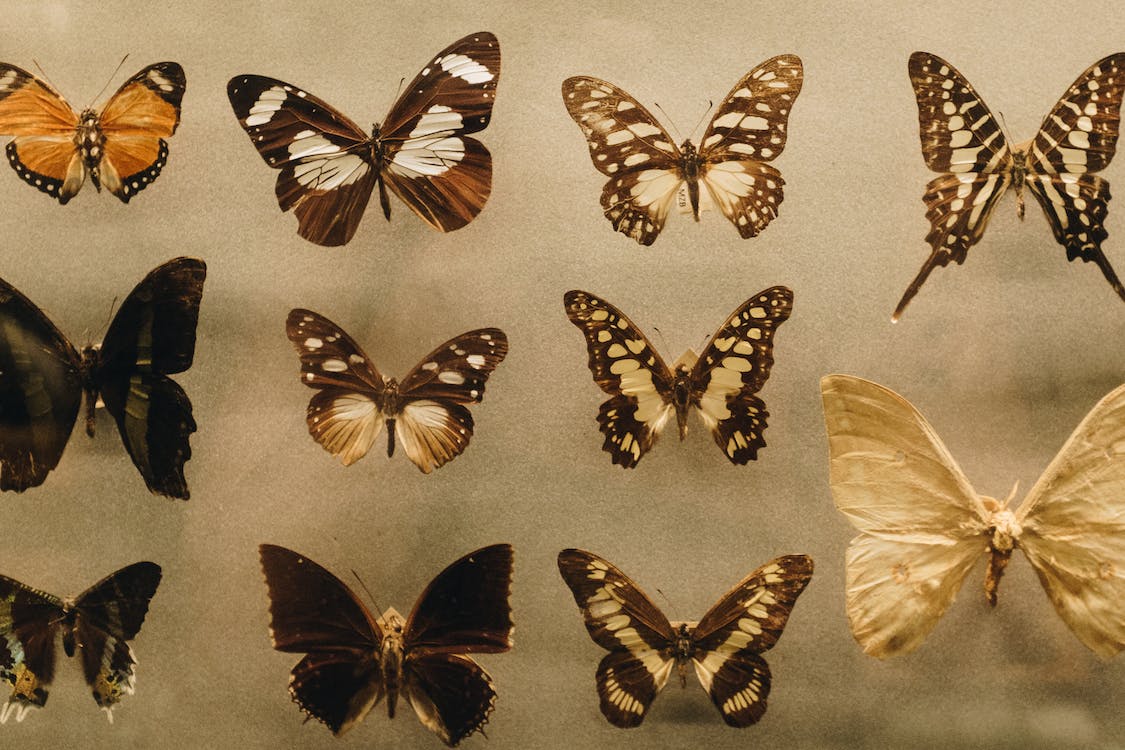A lot of our tutees ask how to answer A-level biology application questions. Application questions (AKA “applied knowledge” questions or assessment objective 2, AO2 questions) challenge you to apply your knowledge in an unfamiliar setting. Essentially, they are biological puzzles, and you have all the information you need to solve them – the real challenge is working out how and where to start.
Here are a few tips to guide you through:
-
Ask yourself – what topic is this?
Look for key words and phrases that give you clues to which topic area (or areas) the question relates to. There may be a lot of information in the opening part of the question here that you’ve not seen before – that’s ok! It’s designed that way. If there’s a strangely named chemical described as an enzyme, everything you know about enzymes and proteins might be useful. Do we have an unfamiliar gene? Great – now everything you know about transcription, translation, epigenetics and even genetic engineering could be relevant.
It’s best to start with a clear idea of the context of the question.
-
Where is the join?
Similarly, application questions often contain hints to how you can blend your knowledge with the information they give you – has something unfamiliar in the question been described as “similar to” something more familiar? Your answer will likely involve a mixture of your own knowledge and using key words (perhaps names and phrases) from the new context. Spot the join between what you know already and the information you need to pull from the question.
-
Where do I start? How do I end?
Questions worth 4, 5 or 6 marks often have a logical flow, like a story. If the question asks you what the link is between a mutation in “gene-you’ve-never-heard-of X” and “mystery illness Y” these are you start and end points – they’ve given these to you – with four (small) steps in-between. One way to do this is to ask yourself “And then what happens…?” after every statement as you build your answer. For example:
Point 1 might be “A mutation in X means the base sequence is altered”
(And then what happens?)
Point 2 “This means the sequence of amino acids in the protein might change”
(And then what happens?)
Point 3 “This may affect the tertiary structure of the enzyme’s active site so it doesn’t fit the substrate (pulling the name of this from the question)”
(And then what happens?)
Point 4 “lacking the working enzyme produces the symptoms of illness Y”. Make sure your points flow like a story.
-
What about this graph, diagram or picture?
As complex as it may look, data is there to help you. Scientists use graphs and charts to communicate their results – so spend some time making sure you understand what point they’re trying to make – and remember not to let unfamiliar compounds phase you! Often the conclusion boils down to one of three conclusions – the results go up (e.g. “adding drug X increases levels of Oxygen in the blood”), they go down (e.g. “”adding drug Y decreases the rate of cancer growth”) or there is no effect (they stay the same, or at lease the effects are not significant).
When commenting on data, remember to make small, specific comparisons between pairs of results – bars on a chart, or lines on a graph. This breaks the problem down into smaller steps, and potentially gives you access to more marks. Remember that a “describe” question wants you to talk about what the data is doing while “explain” wants why it’s doing it (the science behind the graph). “Suggest” questions usually mean you can think creatively to explain the data.
-
Put yourself in the scientist’s shoes
If in doubt, take a deep breath read the question from the start again. Try to ignore any distracting terminology and picture what is happening in the question. My students often find the key to application questions is putting yourself in the scientists’ shoes – can you see anything differently from their POV?
See my other tips for A-level biology essays and A-level biology evaluate questions – hopefully these help too.
Good luck!
 You can find the full version of this guide, including model answers to real exam questions, in our shiny eBook “How to answer A-level Biology exam questions”, available in our shop. A purchase from our shop gives you a month’s free subscription to “ask an expert” – very useful for some exam practice 🙂
You can find the full version of this guide, including model answers to real exam questions, in our shiny eBook “How to answer A-level Biology exam questions”, available in our shop. A purchase from our shop gives you a month’s free subscription to “ask an expert” – very useful for some exam practice 🙂
If you’d like to work through some example questions, please get in touch with me at Woolton Tutors and we can set up some online A-level biology tutoring sessions. AQA students might be interested in my weekly A-level biology masterclass sessions for practice on exam technique.
Best wishes,
John
Dr John Ankers
Specialist online biology tutor
www.wooltontutors.co.uk

